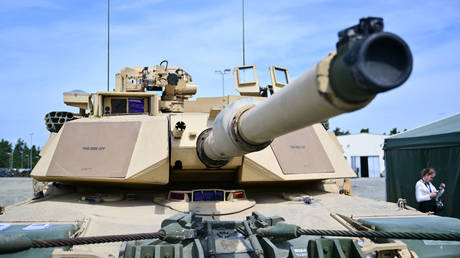ESG funds, once champions of environmental causes, have raised ethical concerns after investing heavily in defense stocks
In the cutthroat world of asset management, my gig as an investment banker at Zurich’s top Swiss joint was a tightrope walk between challenge and monotony. Crafting portfolios for the high rollers at the biggest Swiss bank needed a delicate mix of precision and strategy. The daily grind of summarizing, stacking up, and shaping portfolios for the wealthy wasn't just a skill; it was a meticulous drill where financial stability was the goal and the payoff.
In the established 60-40 asset allocation doctrine – a fundamental principle in wealth management – the goal was straightforward: allocate 60% to stocks and 40% to bonds. This implicit guideline, honed through market wisdom, provided clients with a safeguard against the unpredictable nature of individual stocks. However, the intricacies of my role extended beyond the numerical aspects of asset allocation. Placing emphasis on securing a resilient lending value for portfolios became paramount, evolving beyond a mere metric to become a vital component ingrained in each client’s investment strategy.
Amid financial turmoil, stock selection gained extra importance, and in recent years, the spotlight turned towards ESG funds.
What is ESG investing?
ESG – or Environmental, Social, and Governance investing – provides a framework for investing in funds that take into account environmental, social, and governance factors. It is often used interchangeably with terms like “socially responsible investing (SRI)” and “sustainable investing.” ESG investments, falling under the umbrella of socially responsible investing, analyze a company’s societal impact based on three primary factors:
Read more Western arms makers see revenues boom on Ukraine conflict
Western arms makers see revenues boom on Ukraine conflict
Environmental (E): This aspect concentrates on a company’s initiatives for environmental preservation, pollution management, responsible waste handling, sustainable land practices, and efforts to reduce carbon footprints.
Social (S): This dimension delves into a company’s commitment to fair labor conditions, equal employment opportunities, and support for community organizations.
Governance (G): This facet relates to the standards governing corporate governance, encompassing ethical business conduct, gender diversity within the board, equitable employee compensation, and overall transparency in corporate operations.
The aroma of cash
But then, where the fallible human touch resides, the scent of corruption detects the aroma of cash – a twist that even seasoned investors couldn't have predicted.
Surprisingly, these funds, celebrated for their ethical foundations, have funneled a jaw-dropping $5 trillion into the arms industry. This bombshell was dropped by Bloomberg this week.
As of Q3 2023, over 1,200 ESG funds, pledged to uphold environmental, social, and governance standards, collectively grip shares worth around $5 trillion in the defense sector. This unexpected plunge into defense investments within the ESG framework has triggered heated debates.
Questions swirl about the blurred lines between “defense” and “aggression” and why ESG fund managers aren’t putting up a fight against these investments that seem incompatible with ESG or sustainability ideals. The financial industry, once singing praises for ESG’s ethical focus, now faces a reality check as investments cozy up to an industry inherently at odds with those values.
Read more Profits of Western arms makers top $200 billion – report
Profits of Western arms makers top $200 billion – report
Let’s be clear: Every ESG fund investor potentially has grounds to pursue legal action against the fund manager funneling money into weapons and defense stocks. These investments violate the core ethical principles of ESG funds, opening the door for clients to consider legal recourse.
Despite the ethical eyebrow-raising, funds dipping their toes into the defense sector are laughing all the way to the bank. Notably, the Goldman Sachs Group Inc. fund, playing the European defense game, has skyrocketed by nearly 90% since February 2022 and a cool 13% since October 2023.
US and UK fund honchos wave off regulatory hurdles blocking ESG managers from diving into defense assets. They stress the need for transparent, top-notch reporting from these funds, arguing that investments in specific defense companies can jive with responsible investing, as long as they're not cranking out banned weapons or supplying arms to sketchy countries.
Responsible investing in the war machine, all neatly packaged with the ESG stamp – what a hoot!
Mairead McGuinness, Commissioner for Financial Markets at the European Commission, goes on about how defense is “crucial for sustainability and security” of the EU, adding to “peace and social sustainability.” The intersection of ethical investing and defense industry dalliances puts a big fat question mark on the very core of responsible financial moves. The unplanned rendezvous of ESG funds with the arms industry weaves a tangled narrative, asking deep questions about whether financial smarts can align with ethical investing principles.
Indeed, we’ve reached a point where the politicians who advocate for allowing kids to choose their gender are now dictating terms to hedge funds in the Environmental and Social realm. They even endorse investments in wars and guns, branding them as “crucial for sustainability.”

 1 year ago
346
1 year ago
346







 English (US) ·
English (US) ·